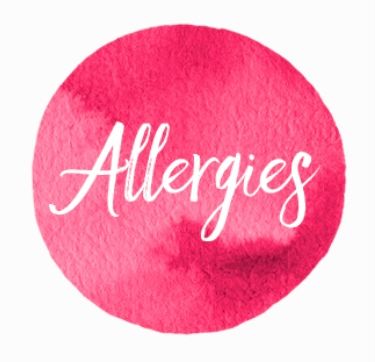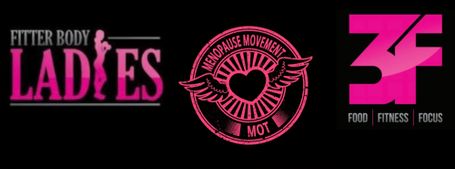
Allergies
You probably knew about tiresome hot flushes and mood swings, but now you can throw itching, coughing and sneezing into the menopause mix. “I’ve got you under my skin” crooned Frank Sinatra. It reminds us of the unwelcome allergic reactions that may be exacerbated or triggered by menopause.
WHY NOW?
Fluctuating hormone levels impact on your finely tuned immune system making it react differently to previously harmless allergens. Falling oestrogen levels in menopause bring sleep problems, fatigue, digestive issues and stress out the nervous system. The body defends itself by producing more histamine, the powerful chemical that leads to allergy symptoms.
Common allergens pollen, dust, pets, chemicals may now pose a problem, causing you to cough, sneeze or wheeze as your immune system releases histamines to deal with the perceived threat.
Asthma Asthma UK say, ‘some women find that their symptoms get worse and some women first develop asthma before and after menopause’. If you arrive at the perimenopause door as an existing asthma sufferer, the impact of hormone fluctuations on your asthma should be discussed with your GP. Eczema and Menopause Depleting hormone levels may trigger eczema. Skin now becomes drier and more prone to irritation. There are a number of over-the-counter and prescription creams for eczema, or your GP can prescribe a corticosteroid cream which may help to relieve inflammation. Sometimes skin is itchy but there’s no rash. It feels like there’s an army of ants crawling around under your skin. This may be the seemingly secret menopause symptom, formication, another hormone-triggered itchy skin condition.
Urticaria (hives) and Menopause The emotional and physical stress of the menopause, may trigger hives (or nettle rash), itchy lumps on the skin. Anti-histamines can help, or if you choose to take HRT for other symptoms, your hives should stay away.
Food Intolerance If you’ve started getting sensitive to certain foods that once you had no problems before then you may becoming allergic to certain food groups resulting, check our symptoms section on Digestive Issues.
And the good news is…. Menopause allergies caused by hormonal shifts should pass, and making changes to your diet, lifestyle, laundry products, and personal cleansing regime, should see symptoms improve
BE PROACTIVE
The best ways to deal with menopause allergies
What to eat to help with allergies
Menopause drains your immune system. Top it up by eating lots of colourful, fresh, unprocessed fruit and vegetables, rich in vitamins and nutrients. Recent research suggested that eating 10 portions per day will be even beneficial - think vivid greens, bright reds, deep purples, sunny oranges and yellows for a healthy plate. Try to eat more of the following to boost your immune system:
Alliums: onion and garlic pack a powerful punch in protecting the immune system.
Vitamin C: a natural antihistamine. Eat more: dark leafy greens, kiwi fruit, broccoli, berries, citrus fruits, tomatoes, peas and peppers.
Omega-3 can help reduce inflammation and produce an oily barrier to keep skin hydrated and reduce itching. Remember the acronym SMASH when meal planning: salmon, mackerel, anchovies, sardines and herring are all good. Eat unsalted nuts, milled linseed & eggs, too.
What to avoid to help with allergies
Food Sensitivity & Irritants You may develop food intolerances. Women’s Health UK identify hard-shelled nuts, dairy, wheat, soy or foods containing sulphites, (a preservative found in wine, cider, beer, soft drinks, dried fruits, fruit yogurts, fruit juices and jams) as possible triggers for rashes, tightening of the chest or in extreme cases, breathing difficulties. Certain foods may also create digestive issues and bloating.
Food additives can add up to a whole heap of allergic reactions from the mild to the severe, including respiratory problems. Cooking from scratch helps to avoid these tricky encounters. See our guest blog by Emily who resolved her digestive issues with changes to her diet.
Smoking Cigarette smoke won’t cause asthma but could aggravate asthma symptoms.
Caffeine Caffeine’s a diuretic, making you wee more. You can then become dehydrated making your skin dry and sensitive to irritants.
Alcohol Sadly, menopause can make you more sensitive to the effects of alcohol. The end of the day pick-me-up glass of wine, or refreshing gin and tonic, may cause migraines, blotches or nausea. The coughs, sneezes and wheezes, brought on by hormone fluctuations can be aggravated by alcohol.
What’s in your glass can impact on allergies Stay hydrated! This can help to dilute the histamines that dictate how your body responds to allergens and help prevent skin drying out and becoming more susceptible to rashes and itchiness. Try to drink 6-8 medium glasses of water/fluids a day. Herbal tea may help - chamomile for hay fever, ginger for nasal and throat inflammation, and eucalyptus for congestion.
Stress Stress weakens the immune system, and can make allergies worse. When you’re stressed, your immune system releases hormones and chemicals including histamine, which can heighten your allergic response. Your menopausal selection box of symptoms can raise your stress levels, so find a calming activity and make time each day for yourself - check out our blog 6 things you can do to relieve stress in menopause.
Exercise Exercise boosts your immune system. Yoga, Tai Chi, Pilates and meditation may help to deal with asthma symptoms and other breathing difficulties. These stretching and relaxing practices teach new breathing techniques, ease stress and may reduce chronic inflammation caused by a rogue immune system.
Get your rest to get your mojo back Being run-down or not getting enough sleep, weakens your immune system, slowing blood flow to your brain and muscles. Recharge your batteries with a relaxing bath. Burn some essential lavender oils before bed. Be still and rest. Your immune system will thank you.
Soap Strategies Use unscented and hypoallergenic laundry and body cleansers to minimise contact with the fragrances and alcohol that can irritate your skin and breathing. After showering moisturise skin to top up moisture levels and to create a protective barrier.
Supplements worth trying for allergies
Nettle: a natural anti-inflammatory, prevents the body producing histamines. Take as a capsule, tincture or tea
Vitamin C, Calcium and Quercetum: will help to reduce histamine production
Vitamin E: may reduce inflammation when applied directly to the skin
Magnesium: helps raise fatty acid levels and fights stress
Black Cohosh and St John’s Wort: contain phytoestrogens, which have a weak oestrogen effect and may provide allergy relief.
*Whilst these are natural products, herbal supplements can have side effects and interact with other medications. Check with your doctor if they’re safe for you.
Alternative help for allergies
Acupuncture & Chinese Herbal Medicine
Acupuncture looks at the needs of a person as a whole rather than dealing with single symptoms. A treatment plan would cover any allergies you are experiencing. As acupuncture helps you to feel more relaxed, your immune system may get stronger, lessoning allergic reactions. Consult ACTM – Association of Traditional Chinese Medicine and Acupuncture UK, for a recommended practitioner. Homeopathy
Homeopathic medicine works by moderating the overactive immune system. It treats each individual’s own distinctive allergic symptoms with a homeopathic principle of “treating like with like”, rather than offering a catch-all remedy for specific allergies. *There is fierce debate about the effectiveness of homeopathy and whether homeopathic medicines comprise of too small a dose to have any effect. There has been plenty of research based around respiratory allergies. Consult a British Homeopathy Association practitioner.
Essential Oils & Aromatherapy
The majority of the commentary we’ve seen is in favour of using essential oils for asthma but there are a number of warnings about whether it is appropriate, so do check with your GP (or asthma clinic).
Essential oils can be burnt in an oil burner, dropped onto a tissue, added to hot water to make a vapour, or added to a bath. Talk to an aromatherapist or reputable supplier to ensure that you’re using them safely.
When to see your doctor about allergies
Pharmacists can advise about the over-the-counter mild steroid creams and anti-histamines available for short-term use.
If symptoms continue, your doctor can prescribe stronger creams and medications, or refer you for allergen and histamine level tests. Any assistance you can get in identifying your allergen gremlins will help.
And then there’s always HRT….
If your allergies are hormone-related, HRT will help by raising the depleted hormone levels that have compromised your immune system and caused the allergies. Although there is limited research, a 2010 study found a small increased risk of developing asthma after taking oestrogen-only HRT. There was no effect on asthma risk in women taking a combined HRT including progesterone, which is the main type of HRT prescribed. Your doctor can discuss your personal risk.
The usual caveat here, that HRT is something to be discussed with your doctor. There are pros and cons to taking it. We don’t take a view. It’s for you to decide whether it’s for you or not.
And we can help
Your Fbl Team x
© Copyright. All rights reserved.
